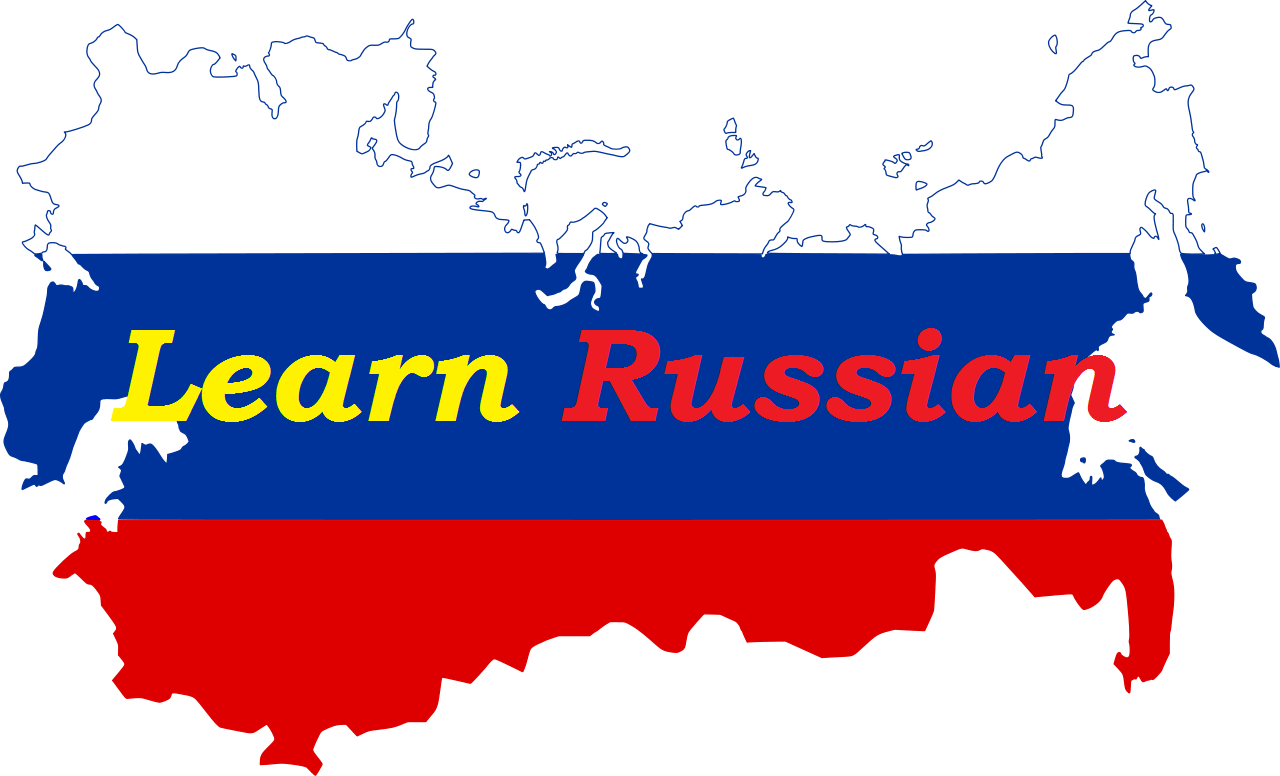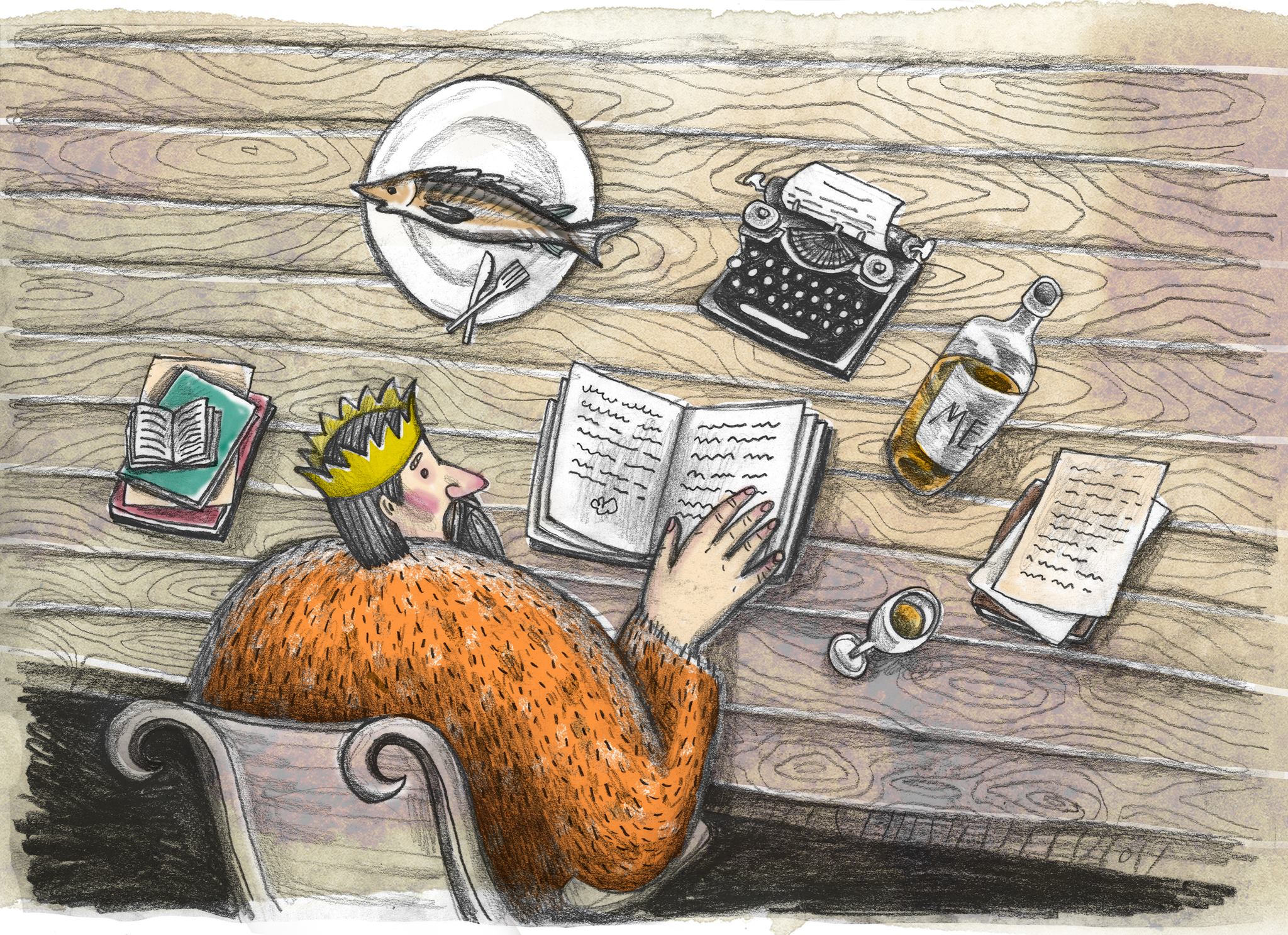Тема «Русский язык» (The Russian language)
Russian is one of the richest and most complicated languages in the world. Leo Tolstoy called it “great and mighty”. It is the language of literature and the greatest poets and writers: Pushkin, Nekrasov, Karamzin, Tolstoy, Chekhov, Nabokov. It is rich in synonyms, antonyms, idioms, slang, archaisms and borrowings. According to Dahl’s dictionary the Russian language contains 200 000 words.
Russian is not the only one spoken in the Russian Federation. Although there are some other officially recognized languages in different regions across the country, Russian is official throughout the nation.
Russian belongs to the Slavic group of the Indo-European family of languages which ties it to Greek and Latin. Its closest spoken relatives are Ukrainian and Belarusian. Over the centuries, its vocabulary and style have been influenced by German, French, Italian and English languages. Modern Russian also includes a large number of international political, technological and scientific terms.
The alphabet is known as Cyrillic and it goes back to the ninth century. Its most ancient version was developed by two Greek brothers Cyril and Methodius. The alphabet acquired its modern shape in the 17th century under Peter the Great, while the written Russian of today was introduced by the Soviet government in 1918. Today the Russian alphabet consists of 33 letters, and the large number of vowels (10 vowels) makes the language very melodious.
Foreign students usually face a lot of difficulties while learning the Russian language because of its numerous suffixes and complicated punctuation rules. They are also really surprised with changing the word order in Russian sentences.
Russian is the eighth most spoken language in the world. It is estimated that more than 200 million native speakers use it. Russian is one of the six official languages of the United Nations. It was taught as a compulsory school subject in many Eastern European countries in the Soviet era. Large Russian-speaking communities also exist in Israel, Germany, the USA, Turkey and other countries.
Перевод
Русский – один из богатейших и сложнейших языков в мире. Лев Толстой назвал его «великим и могучим». Это язык литературы и величайших поэтов и писателей: Пушкина, Некрасова, Карамзина, Толстого, Чехова, Набокова. Он богат синонимами, антонимами, идиомами, слэнгом, архаизмами и заимствованиями. Согласно словарю Даля, русский язык содержит 200 000 слов.
Русский не является единственным, на котором говорят в Российской Федерации. Несмотря на то, что существуют некоторые другие официально признанные языки в различных регионах страны, русский является официальным для нации.
Русский принадлежит к славянской группе индо-европейского семейства языков, что связывает его с греческим и латинским языками. Его ближайшие разговорные родственники – это украинский и белорусский языки. На протяжении столетий его словарный запас и стиль были подвержены влиянию немецкого, французского, итальянского и английского языков. Современный русский язык также включает в себя большое количество международных политических, технологических и научных терминов.
Алфавит известен как кириллица, он уходит корнями к девятому веку. Его наиболее древняя версия была разработана двумя братьями-греками Кириллом и Мефодием. Алфавит приобрел свою современную форму в 17 веке под влиянием Петра Великого, тогда как сегодняшний письменный русский язык был представлен советским правительством в 1918 году. Сейчас русский алфавит состоит из 33 букв, и большое количество гласных (10 гласных) делает язык очень мелодичным.
Иностранные студенты обычно сталкиваются с большими трудностями в изучении русского языка из-за многочисленных суффиксов и сложных правил пунктуации. Их также очень удивляет изменяющийся порядок слов в русских предложениях.
Русский язык – восьмой наиболее употребляемый язык в мире. Согласно оценке, более 200 миллионов носителей языка пользуются им. Русский является одним из шести официальных языков в Объединенных Нациях. Он преподавался как обязательный школьный предмет во многих восточно-европейских странах в советские времена. Большое количество русскоязычных общин также существуют в Израиле, Германии, США, Турции и других странах.
Как перевести: Purchases made in this region will only receive the Russian language?
Фраза переводится, как «Заказчики в этом регионе получат только русский язык». Это значит, что вам будет доступен только русский язык, сменить язык будет невозможно.
Данная надпись означает. что в игре нельзя будет сменить язык, будет доступен только русский. То есть, если вы покупаете игру на территории Российской Федерации, в игре будет язык именно этой страны.
I am Pakistani and want to learn Russian language in Pakistan. Can you please help me in this regard?
You can start with this one: russianlessons.net or something similar. Russian movies with english subtitles can help you after first term.
My Russian wife told me, «The hand that pours the wine can not change». Is this a real thing, or was she just too lazy to pour?
There are many alcoholic traditions in Russia. And one of them is «the hand that pours the wine can not change». Why is that? I think, even Russians couldn’t tell you. Some traditions are so old, that you use them, but don’t know the origin of them. If you ask a Russian about it, one can say to you that changing hand can lead to a quarrel between drinking people, others can say to you the alcohol may be changed in its taste, and some people will say to you it is a very funny tradition in drinking culture and they use it only for fun. In short, using this tradition leads to a luck.
Почему от выходящей из ЕС Великобритании требуют 100 млрд, а России ни одна из бывших республик не заплатила?
А с какой стати союзные республики должны были платить России? За что?
При разъединении СССР, осуществлённом вследствие общего согласия всех 15 республик, в России осталась практически вся сырьевая база, основной объём экономического потенциала, всё ядерное оружие, бОльшая часть вооружений и вооруженных сил, почти весь флот, половина населения и гигантская территория.
Как раз союзные республики имели основания предъявить счёт России. Вполне логичным выглядел бы с их стороны такой аргумент: поскольку, мол, сырьевая база Союза была общей и ее разработка финансировалась из общего союзного бюджета, то поэтому и мы имеем право на соответствующую часть этих ресурсов в натуральном или денежном выражении.
В основу разъединения был положен очень мудрый и ответственный принцип «как есть», т.е. все, что имелось на территории данной республики на момент разъединения, оставалось у неё. Этот принцип был прежде всего выгоден России. Альтернативу показал кровавый опыт Югославии.
У Союза к 1991 была реальная возможность сохраниться в некоей модернизированной форме, но крест на этом варианте поставила реваншистская попытка госпереворота ГКЧП — товарищи ведь боролись за свои номенклатурные позиции, а сохранение Союза было для них лишь пропагандистским прикрытием.
У Союза не было перспективы — это показала последующая история развала и СНГ. Даже если оставить в стороне политическое содержание Союза, как наследие тоталитаризма, опыт СНГ показал отсутствие прочных общих связей между бывшими республиками, даже социо-культурных, не говоря уж об экономических. Все выжили самостоятельно, все нашли своё место в мировой экономике и наладили новые связи с новыми партнерами. Никто без России не умер.
У Великобритании совершенно другая история с Евросоюзом. Она одна выходит из союза, который сохраняется и продолжает функционировать, в т.ч. продолжает какое-то время, до их завершения, финансировать различные программы, связанные с участием в них Великобритании — поддержки регионов, в области образования, аграрной политики, пенсии еврочиновникам от Великобритании и т.п. Цифра британского долга рассчитывается как разница между обязательствами ЕС и британскими активами, прежде всего в Европейском инвестиционном банке. Сейчас эта цифра составляет уже не €100 млрд., а колеблется в пределах €45-55 млрд.
Ничего подобного в случае с СССР не было, поскольку из Союза все выходили сразу.
A guide to Russian words found in the English language
Russian words in English language.
Shuba and glasnost: historical borrowings
One of the earliest borrowings from Russian was the word “sable” (from the Russian: sobol — a carnivorous mammal of the Mustelidae family native to northern Europe and Asia). In the 12th-13th centuries, this animal’s fur was a form of currency, and in 14th century English dictionaries the word «sable’’ can be found. In addition to the meaning of the noun, it became an adjective for “black.”
A large number of Russian borrowings came to the English language in the 16th century, which was a time of growing Russian-English trade and political relations. Many such words concerned traded goods:
Beluga — a type of whale or sturgeon
Starlet — a small sturgeon of the Danube basin and Caspian Sea; farmed and commercially fished for its flesh and caviar
Kvass — a fermented mildly alcoholic beverage made from rye flour or bread with malt; sometimes translated into English as “bread drink”
Czar (or tsar) – Russia’s ruler until the 1917 Revolution
Ztarosta (starosta) — a title that designates an official or unofficial leader; the head of a community (church starosta, or school starosta)
Moujik (muzhik) — a male peasant
In the 18th and 19th centuries, other Russian words originally specific to Russian history entered into English. Nowadays, however, they mostly can be found only in historical works or books of fiction:
Ispravnik — the chief of the district police
Obrok – an annual tax formerly paid by a Russian peasant engaged in trade
Barshina — forced labor of peasants on a landlord’s land
In the 19th century, words related to the socialist and democratic movements in Russia entered into English:
Decembrist — a participant of the uprising against Czar Nicholas I at the time of his accession in St. Petersburg on Dec. 14, 1825
Nihilist, nihilism — a denial of the validity of traditional values and beliefs. The term spread after publishing of the novel, Fathers and Sons (1862), by Russian writer Ivan Turgenev, where the main character is the nihilist Bazarov.
Narodnik (from Russian “narod” — people) – a member of the 19th century rural socialist movement who believed that political propaganda among the Russian peasantry would lead to the awakening of the masses to challenge the czarist regime.
Intelligentsia – society’s intellectual elite
Of course, the words “nihilist,” “decembrist,” and “intelligentsia” are not truly Russian in origin and are borrowed from Latin. However, these words came into English from Russian.
After the 1917 Revolution many Russian words appeared in many languages. Most are used to denote completely new things and notions specific to Russia and Russian politics.
Here is a list of some well-known Russian words from the Soviet era:
Bolshevik (from Russian for “majority”) — a member of the majority faction of the Russian Social Democratic Party, which was renamed the Communist Party after seizing power in the October Revolution in 1917.
Samizdat — a system in the USSR and countries within its orbit by which forbidden literature was clandestinely printed and distributed; also such literature
Soviet — a revolutionary council of workers or peasants in Russia before the Revolution; also, an elected local, district, or national council in the former Soviet Union.
Sputnik (originally – “a traveling companion”) — the name given to a series of Soviet-era satellites; the first objects launched into space
Cosmonaut — a Russian astronaut
Kolkhoz (abbreviation for Russian “kollektivnoye khozyaystvo”) – a cooperative agricultural enterprise operated on state-owned land by peasants; a collective farm
Tovarishch — a companion or fellow traveler; used as a direct form of address in the Soviet Union; equivalent to comrade
Gulag — originally an acronym for a Soviet-era system of forced-labor camps; it now can refer to any repressive or coercive environment or situation
Apparatchik – the name given the Communist Party machine in the former Soviet Union; also a member of the Communist Party and an official in a large organization, typically in a political one.
American academic and author James Billington describes one as «a man not of grand plans, but of a hundred carefully executed details.” It’s often considered a derogatory term, with negative connotations in terms of the quality, competence, and attitude of a person thus described.
The words “pioneer” and “brigade” had existed in English, but they got new meanings as “a member of the children’s Communist organization” and «labour collective» after the revolution in Russia. A new political regime in the 1990s created the new words, “glasnost” and “perestroika.”
Glasnost — an official policy in the former Soviet Union (especially associated with Mikhail Gorbachev) emphasizing openness with regard to discussion of social problems and shortcomings.
Perestroika — a reform of the political and economic system of the former Soviet Union, first proposed by Leonid Brezhnev at the 26th Communist Party Congress in 1979, and later actively promoted by Mikhail Gorbachev starting in 1985.
Borscht and kazachoc: cultural borrowings
Other borrowings relate to Russian cultural and gastronomic traits.
Pelmeni — an Eastern European dumpling filled with minced meat, especially beef and pork, wrapped in thin dough, and then boiled
Borscht (Borshch) — a beet soup served hot or cold, usually with sour cream
Kissel — a viscous fruit dish, popular as a dessert and as a drink
Vodka (barely needs to be introduced) — a distilled beverage composed primarily of water and ethanol, sometimes with traces of impurities and flavorings, 40 percent alcohol by volume ABV (80 US proof).
Medovukha — a Russian honey-based alcoholic beverage similar to mead
Molotov cocktail — a makeshift bomb made of a breakable container filled with flammable liquid and with a rag wick that is lighted just before being hurled. “Cocktail” named after Vyacheslav Molotov: while dropping bombs on Helsinki, Soviet Foreign Minister Vyacheslav Molotov claimed the Soviets were only dropping food and drink to their comrades.
Russian roulette — a very dangerous game of chance where each player points at their own head with a gun that has one bullet in it and five empty chambers
Kazachoc (literally translated it means «Little Cossack») — A Slavic dance, chiefly Russian and Ukrainian, with a fast tempo featuring a step in which a squatting dancer kicks out each leg alternately to the front.
Sambo — a Soviet martial art originally developed in the former Soviet Union. The word «SAMBO» is an acronym for SAMozashchita Bez Oruzhiya, which literally translates as «self-defense without weapons.»
You definitely have heard the Russian word “babushka.” When it entered into the English language, in addition to its original meaning “grandmother,” it got another one: a type of scarf commonly worn by babushkas.
After 1991, there were some new words such as “gopnik” or “silovik” still coming to other languages.
Gopnik — a pejorative term to describe a particular subculture in Russia and other Slavic countries that refers to aggressive young men or women of the lower-class from families of poor education and income, somewhat similar to American “white trash.”
Silovik — a word for state officials from the security or military services, often officers of the former KGB, GRU, FSB, SVR, the Federal Drug Control or other security services who wield enormous political and state power.
Some linguists even claim that one of the most popular verbs in modern English, “to talk,” has Scandinavian roots — “tolk,” which is originally from the Russian “tolk,” “tolkovat”. And the word «milk» was borrowed from Slavic tribes as «meolk,» and then as «milk.» There’s a similar story for other words such as «honey» (Old English — meodu, Russian — mjod).
Try to guess the meaning of these words of Russian origin:
Pirozhki (also piroshki)
Spetsnaz (or Specnaz)
Which Russian words have you met in other languages? Share your comments!
If using any of Russia Beyond’s content, partly or in full, always provide an active hyperlink to the original material.


